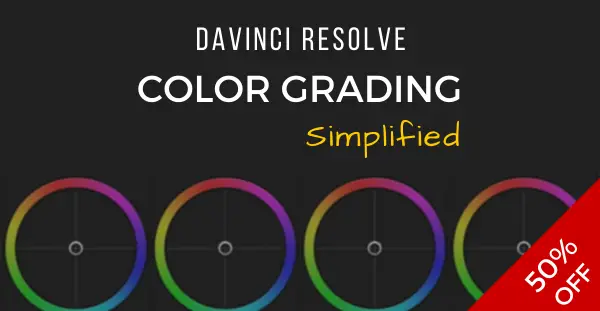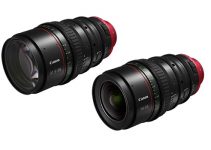Canon impressed all when they released the EOS C200 Cinema Camera. It did internal 4K Raw – and it was (relatively) affordable! Sure, it cut down on some features that would’ve been seriously appreciated, but for those working with DSLRs and trying to upgrade it was looking mighty fine. The final piece that made it so tempting was that it had the Canon EF mount, meaning all that fine glass already in many shooters’ kits worked perfectly.
Newcomers to the system or those looking to expand their lens collection may want some guidance. Scott McKenna is showing off his five recommended lenses for use on the C200. I would even point out that these lenses will work on any camera that accepts EF lenses either natively or via an electronic adapter, such as the R5, making this video well worth a watch.
McKenna’s kit features five L-series lenses. Makes sense, though I guess there may be some surprise that there aren’t actually any “cine” lenses in the kit. Let’s take a look at his choices.
1. Canon EF 85mm f/1.4L IS USM
Now this is a beautiful lens. Some may argue that the 85mm f/1.2L II is the true Canon portrait king, but for video the extra resolution and addition of IS to the 85mm f/1.4L makes it much better for cinema.
McKenna specifically calls out that image stabilization is the reason for picking this model, especially since the C200 lacks a built-in IS system. The longer focal length absolutely needs it for handheld work.
Being a newer L lens gives it a bit cleaner design and it has a solid size combined with a large, rubberized focusing ring for when you need it. This lens is a lovely starting place for any lens kit and is their most-used lens.
2. Canon EF 50mm f/1.2L USM
I think it is safe to say the EF 50mm f/1.2L is becoming a classic choice in Canon’s lineup. McKenna says they use it when they need something just a bit wider than their go-to 85mm. The 50mm is a legendary focal length, and the f/1.2 is Canon’s best option with solid construction and a fast f/1.2 aperture. That aperture also gives it a distinct look.
The lens is a little small physically, with a smaller focusing ring. Also, since it lacks IS you’ll likely want to steady it with a monopod or tripod to get clean images. The lens is commonly used for interviews or when you want a slightly wider angle that you can crop into to get a different shot.
3. Canon EF 24mm f/1.4L II USM
When you gotta go wide, you gotta use the 24mm f/1.4L II. Ideal for run-and-gun shooting, documentary work, vlogging, and environmental shots. The fact that it is wide and still has a wide f/1.4 aperture allows you to get the shallow depth of field for separating your subject from the background.
Being relatively small, the 24mm is a good fit for the C200 when you use it on a gimbal like the DJI Ronin-S.
4. Canon EF 16-35mm f/2.8L III USM
For even wider shots, that is when the 16-35mm f/2.8L comes into play. It, obviously, has a wider range than the fixed 24mm we just mentioned but adds some versatility by offering a bit more zoom than the 24mm. On the C200’s Super 35mm sensor this gives you a very nice wide to normal range. Being limited to f/2.8 you lose some of the shallow depth of field of the primes, but you trade up in versatility.
The lens is a bit larger than the primes, giving it a good feel when shooting handheld. McKenna finds it to be a good option for talking heads. He also points out you’ll likely get either the 24mm or the 16-35mm and that he would choose the 24mm.
5. Canon EF 70-200mm f/2.8L IS III USM
I don’t think there is a more recognizable lens from Canon than the 70-200mm f/2.8L. Not only does it sport the classy white finish, the lens is amazing optically. It’s sharp. It’s stabilized. It’s versatile. Sure, it’s an f/2.8 but the telephoto focal lengths will help get that shallow look you want.
It’s the biggest lens of this bunch and is incredibly useful for getting tighter shots or shooting distant objects. Having the ability to zoom out to 70mm makes it useful for some other shot types and you don’t have to swap out glass to get there.
I can’t say I have any issues with this selection of lenses. Interestingly it skips over the common 24-105mm, but with all these other lenses I can’t see a need for it except for documentary situations. The best part is that so much stuff works with Canon EF glass, so even if you don’t own a C200 you should check out some of these lenses.
Any lenses missing from this list? Obviously they didn’t go over anything from third parties like Sigma.
[source: Scott McKenna]
Order Links:
- Canon EOS C200 Cinema Camera (B&H)
- Canon EF 85mm f/1.4L IS USM Lens (B&H, Amazon)
- Canon EF 50mm f/1.2L USM Lens (B&H, Amazon)
- Canon EF 24mm f/1.4L II USM (B&H, Amazon)
- Canon EF 16-35mm f/2.8L III USM (B&H, Amazon)
- Canon EF 70-200mm f/2.8L IS III USM Lens (B&H, Amazon)
Disclaimer: As an Amazon Associate partner and participant in B&H and Adorama Affiliate programmes, we earn a small comission from each purchase made through the affiliate links listed above at no additional cost to you.
Claim your copy of DAVINCI RESOLVE - SIMPLIFIED COURSE with 50% off! Get Instant Access!



